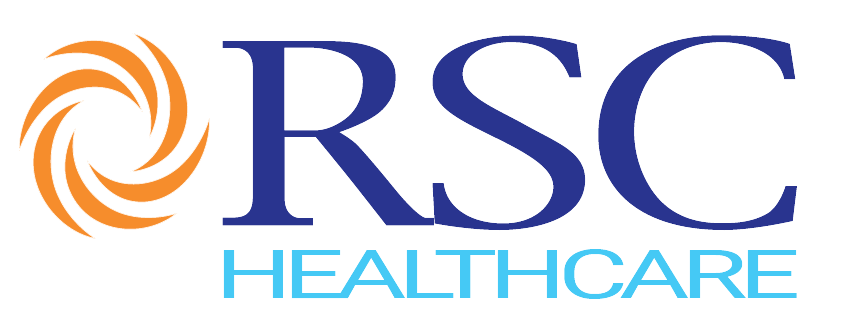- Introduction
- Current Challenges in Healthcare Staffing
- Technological Advancements in Healthcare Staffing
- The Role of Artificial Intelligence in Healthcare Staffing
- The Impact of Telehealth on Healthcare Staffing
- Strategies for Effective Talent Acquisition in the Healthcare Industry
- The Importance of Retaining Healthcare Professionals
- The Future of Nurse Staffing
- The Shift Towards Remote Work in Healthcare
- The Role of Data Analytics in Healthcare Staffing
- The Future of Healthcare Staffing: Trends and Predictions
- Conclusion
Introduction
The future of healthcare staffing is a topic of great importance and interest in the healthcare industry. As advancements in technology continue to shape the way we live and work, it is inevitable that these changes will also impact the way healthcare professionals are recruited, hired, and retained.
Current Challenges in Healthcare Staffing
In order to understand the future of healthcare staffing, it is essential to first examine the current challenges that healthcare organizations face in this area. One of the main challenges is the shortage of qualified healthcare professionals, particularly in specialized fields such as nursing and primary care. This shortage not only affects the quality of patient care but also puts a strain on existing healthcare staff who are often overworked and overwhelmed.
Technological Advancements in Healthcare Staffing
Technological advancements have played a significant role in transforming various industries, and healthcare staffing is no exception. The use of innovative technologies such as artificial intelligence (AI), machine learning, and automation has the potential to revolutionize the way healthcare professionals are recruited and matched with job opportunities. These technologies can streamline the hiring process, improve candidate matching, and ultimately enhance the efficiency of healthcare staffing.
The Role of Artificial Intelligence in Healthcare Staffing
Artificial Intelligence (AI) is poised to play a crucial role in the future of healthcare staffing. AI-powered algorithms can analyze vast amounts of data to identify patterns and make predictions about candidate suitability for specific roles. This can greatly expedite the candidate selection process, saving time and resources for healthcare organizations. Additionally, AI can help identify skills gaps and training needs within the healthcare workforce, enabling targeted professional development initiatives.
The Impact of Telehealth on Healthcare Staffing
Telehealth has emerged as a game-changer in the healthcare industry, especially in light of the COVID-19 pandemic. This technology allows healthcare professionals to provide remote care and consultation to patients, eliminating geographical barriers. From a staffing perspective, telehealth opens up new opportunities for healthcare professionals to work remotely, reducing the constraints of physical location and increasing access to healthcare services.
Strategies for Effective Talent Acquisition in the Healthcare Industry
Talent acquisition is a critical aspect of healthcare staffing, and organizations must employ effective strategies to attract and recruit top talent. This includes leveraging digital platforms and social media to reach a wider pool of candidates, offering competitive compensation packages and benefits, and fostering a positive workplace culture that promotes professional growth and work-life balance.
The Importance of Retaining Healthcare Professionals
Retaining healthcare professionals is just as important as recruiting them. High turnover rates can be detrimental to patient care and organizational stability. Healthcare organizations must prioritize employee engagement, provide opportunities for career advancement, and create a supportive work environment that recognizes and rewards the contributions of healthcare professionals.
The Future of Nurse Staffing
Nurses play a vital role in the healthcare system, and the future of nurse staffing is a topic of particular interest. With the increasing demand for healthcare services, it is crucial to address the challenges that nurses face, such as burnout and work-life balance. The future of nurse staffing will involve innovative solutions, such as flexible work arrangements, improved nurse-to-patient ratios, and the integration of technology to streamline workflows.
The Shift Towards Remote Work in Healthcare
Remote work has gained momentum across various industries, and healthcare is no exception. The COVID-19 pandemic has accelerated the adoption of remote work in healthcare, with telemedicine and virtual consultations becoming the norm. This shift towards remote work has opened up new possibilities for healthcare professionals, allowing them to work from anywhere and providing greater flexibility in managing their personal and professional lives.
The Role of Data Analytics in Healthcare Staffing
Data analytics has the potential to revolutionize healthcare staffing by providing valuable insights into workforce trends, recruitment strategies, and performance metrics. By analyzing data related to candidate qualifications, job market demands, and employee satisfaction, healthcare organizations can make data-driven decisions to optimize their staffing processes and ensure the right professionals are in the right roles.
The Future of Healthcare Staffing: Trends and Predictions
The future of healthcare staffing is likely to be shaped by several key trends and predictions. These include the continued integration of technology, the rise of gig economy platforms connecting healthcare professionals with short-term assignments, and a focus on diversity and inclusion in the healthcare workforce. Additionally, healthcare organizations will need to adapt to changing demographics and evolving patient needs, requiring a flexible and agile approach to staffing.
Conclusion
In conclusion, the future of healthcare staffing holds immense potential for positive change in the industry. Technological advancements, AI, telehealth, and remote work are just a few factors that will shape how healthcare professionals are recruited, hired, and retained. By embracing these changes and implementing effective strategies, healthcare organizations can ensure a sustainable and resilient workforce that delivers high-quality care to patients.
